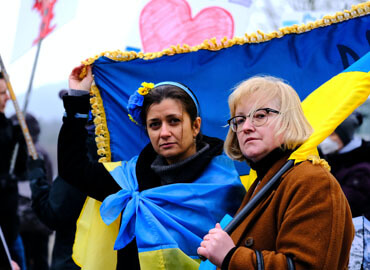October 3, 2023
In September 2023, Alexander Lukashenka’s Decree No. 278 On the procedure for issuing documents and taking action was published, triggering a broad response in Belarusian society. The decree provides for changes in procedures for issuing a whole range of official documents. Before the decree came into force, individuals could request documents be issued in person or through a designated representative through a power of attorney issued either in Belarus or in foreign countries. After the decree came into force, these requests can now be made only in person or through a designee by power of attorney issued only in Belarus. The broad public outcry against the decree stems from the fact that now Belarusian citizens can receive a new passport only in Belarus, as Belarusian missions abroad have ceased to issue them. The decree, however, applies not only to passports, but also to other documents, including those on education and instruction:
- Paragraph No. 7 of Appendix No. 1 to the decree states that now an application for receiving copies of an education document or their appendices can only be submitted in Belarus, either in person or through a representative by power of attorney issued only in Belarus.
- Paragraph No. 12 of Appendix No. 1 to the decree states that apostilling an official document drawn up in Belarus will also be carried out in Belarus either personally or through a representative on the basis of a power of attorney issued only in Belarus.
According to Article 90 of Belarus’s Education Code, educational documents include the following:
- certificate of general basic education
- certificate of general secondary education
- vocational education diploma
- secondary specialized education diploma
- bachelor’s degree
- master’s degree
- research diploma
- higher education retraining diploma
- secondary specialized education retraining diploma
- certificate of advanced training
According to Article 91 of Belarus’s Education Code, training documents include:
- special education certificate
- internship certificate for executives and specialists
- special training certificate
- worker training, retraining, or advanced training certificate
- drivers of motor vehicles or self-propelled machines training, retraining, or advanced training certificate
- certificate of completion from the department of pre-university training, preparatory division, or preparatory courses
- certificate of additional education for children and youth
- certificate of training
- training certificate
The measures of the decree are primarily directed against people who oppose Lukashenka’s regime and who cannot remain in or return to Belarus due to politically motivated persecution by the Belarusian regime. We see the danger of this decree to education in several directions simultaneously:
- In the event of loss or confiscation of an education document, a citizen fleeing the Belarusian regime will not be able to authenticate their education in a foreign country. To obtain a copy of education documents, citizens will have to go to Belarus to apply for documents in person or will need to have a power of attorney designated to a representative. Entering Belarus poses a direct danger for citizens, as there is a high probability of arrest by Belarusian security forces.
- If a citizen was forced to leave Belarus urgently, they will not be able to confirm they studied at a Belarusian educational institution. A similar situation will occur in the event of a citizen’s urgent departure from Belarus with children in that they will not have documentary evidence of the children’s education in Belarusian educational institutions. This is owing to the fact that education certificates, which confirm education in a particular institution, are considered education documents that are also subject to the decree. Citizens then will have to enter Belarus to receive a certificate of study in person or have a Belarusian power of attorney signed for a representative.
- To matriculate at foreign educational institutions Belarusian citizens must have their diplomas apostilled. After the decree comes into force, to initiate the procedure for having a document apostilled citizens will need to do so from Belarus.
Lukashenka’s decree significantly complicates the processes of receiving education for Belarusian citizens and for them in having educational documents recognized in foreign countries. In some cases (for example, loss of education and training documents), the process of studying further or recognizing a citizen’s qualifications becomes impossible. As a result, highly qualified specialists from Belarus will be able to count on, at best, unskilled and low-paid work. We also expect an increase in the number of arrests, politically motivated court sentences, and the number of political prisoners in Belarus due to the fact that many citizens will risk entering Belarus to have powers of attorney issued for their designated representatives.
There are documented cases of educational institutions in Belarus deliberately violating the decree and, of their own initiative, introducing additional restrictions that further exacerbate the situation for Belarusian citizens in foreign countries. For example, independent media in Belarus have reported on cases where Belarusian universities have not issued documents on general secondary education to people forced to leave the country urgently due to political persecution. This practice was officially confirmed through independent media by employees of Belarusian State Economics University (BSEU) and Belarusian State University (BSU). These universities are required to issue documents on education they have on record, with such procedures not subject to the decree. At the same time, we allow that violations of the law by universities are taking place on purpose, so that citizens have an additional motivation to return to Belarus. This problem only strengthens our conclusions and establishes a situation where citizens of Belarus may find themselves in a foreign country without any educational documents and be unable to obtain them without the risk of being arrested.
Recommendations:
Considering the Belarusian regime’ current tendency to continue to persecute political opponents who managed to leave the country, a set of measures that could facilitate the validation of education for such citizens needs to be considered. This set of measures would primarily concern the following categories of people:
- A) Those with refugee status.
- B) Those who have a temporary residence permit issued on humanitarian grounds.
- C) Those with documented evidence of persecution by the Belarusian regime for political reasons.
This set of measures may include the following:
- Enrollment of students in schools and universities without diplomas from Belarusian educational institutions on the basis of internal tests (interview, testing, portfolio review, etc.).
- If impossible for a person to provide a Belarusian document on education, allow Belarusian citizens without these documents to take entrance examinations to universities when they reach 18-19 years of age. Belarus has compulsory secondary education, meaning that by the age of 19 all Belarusian citizens will have completed their secondary education.
- Belarusian citizens who find themselves in a foreign country without educational documents and cannot enter Belarus for political reasons require legal support.
- Programs are needed to assist citizens of Belarus who find themselves in a foreign country and cannot provide documents on higher education to validate their qualifications. Such assistance programs may include language courses, retraining programs, or accelerated training for existing qualifications with legal documents on education being issued.
A separate issue arises in apostilling Belarusian education documents. In recent years, the Belarusian state has deliberately raised the cost of this service with the result being increased funding for the Belarusian regime. There are also cases where data on apostilled documents was transferred to law enforcement agencies, increasing the pressure on Belarusian citizens who are looking to continue their studies in foreign countries. We recommend considering the possibility of recognizing Belarusian documents on education and training without affixing a Belarusian apostille for all citizens of Belarus who wish to enroll in foreign educational institutions.










